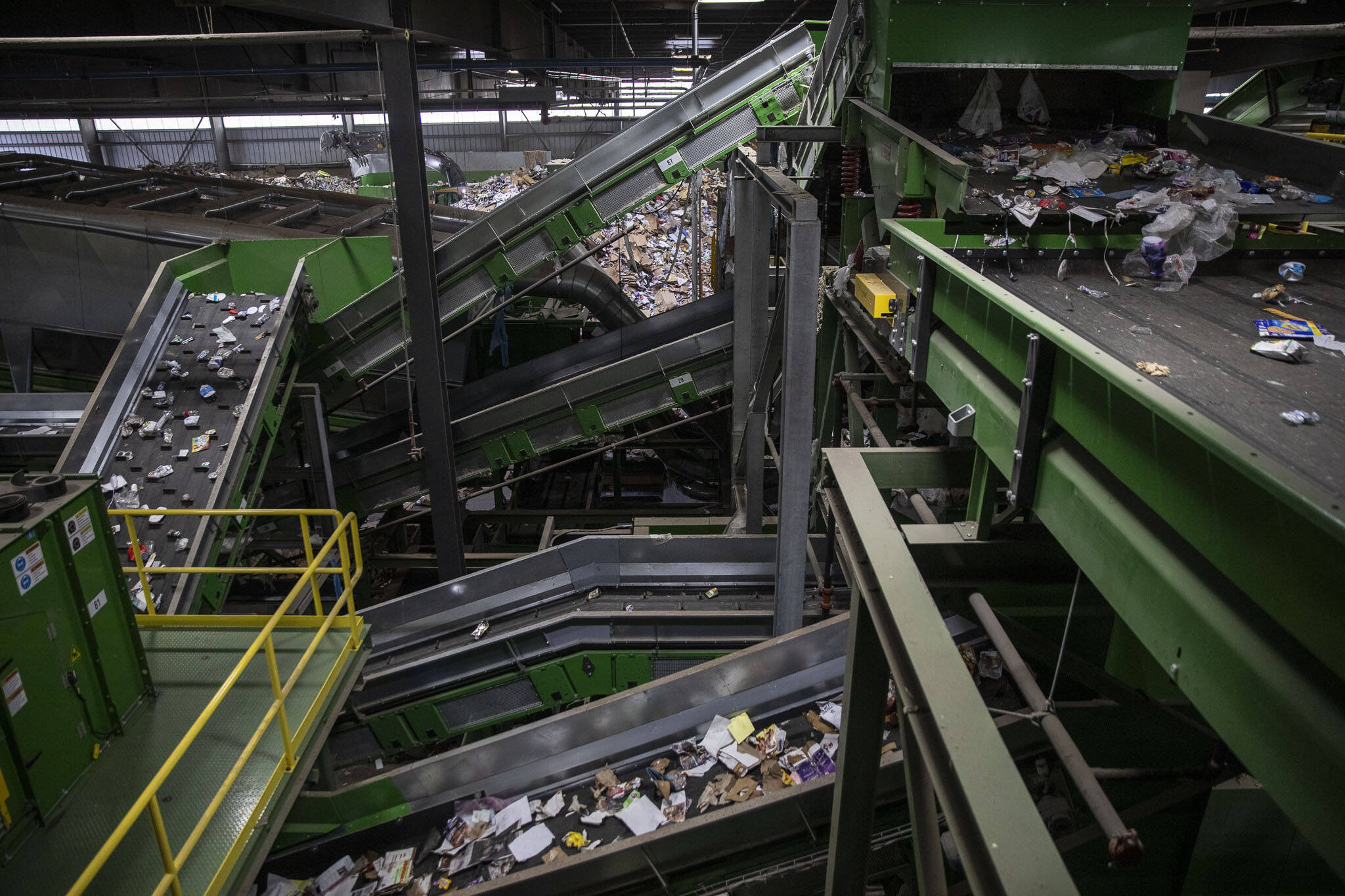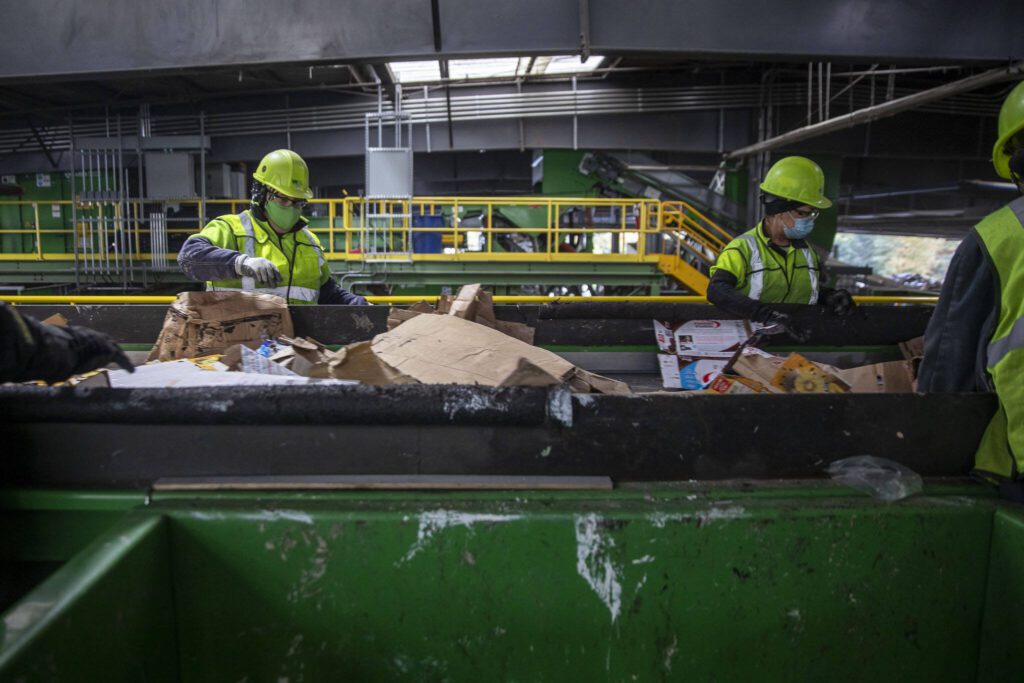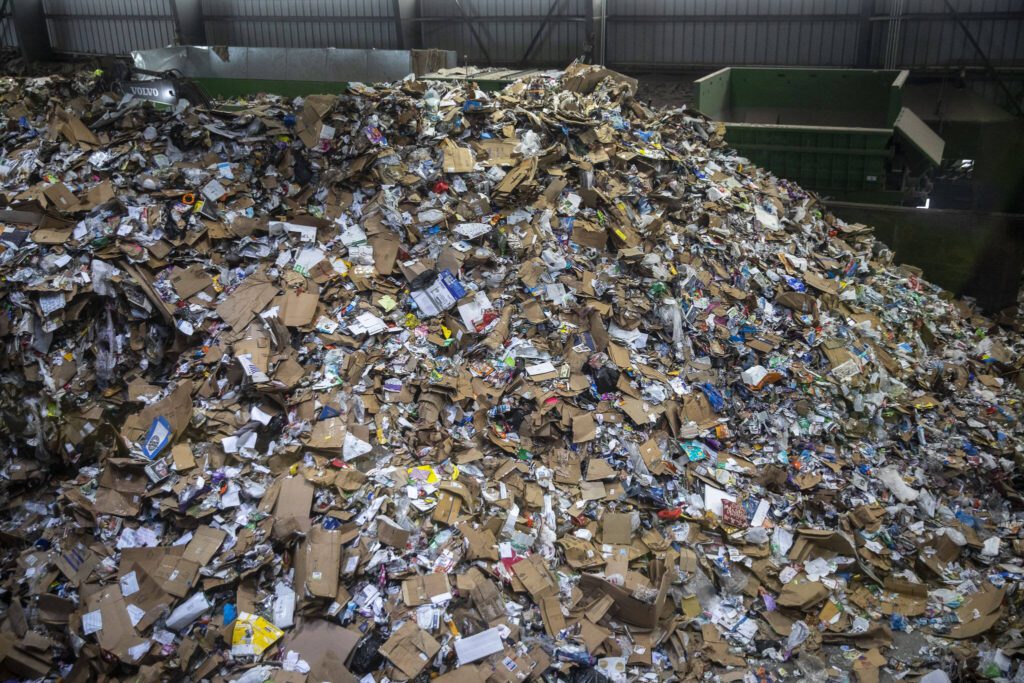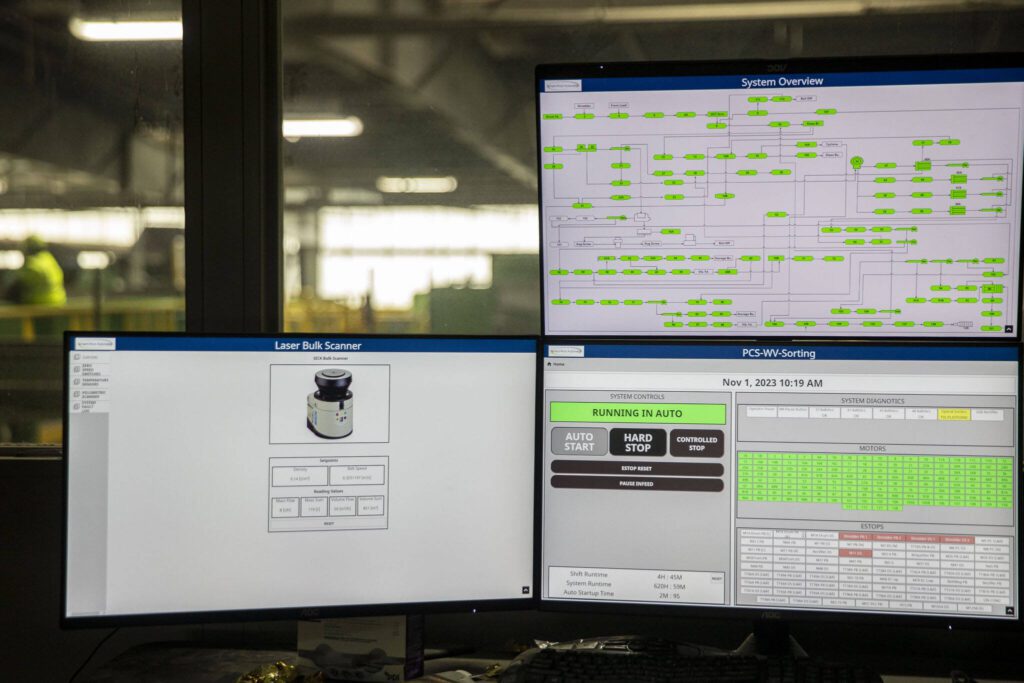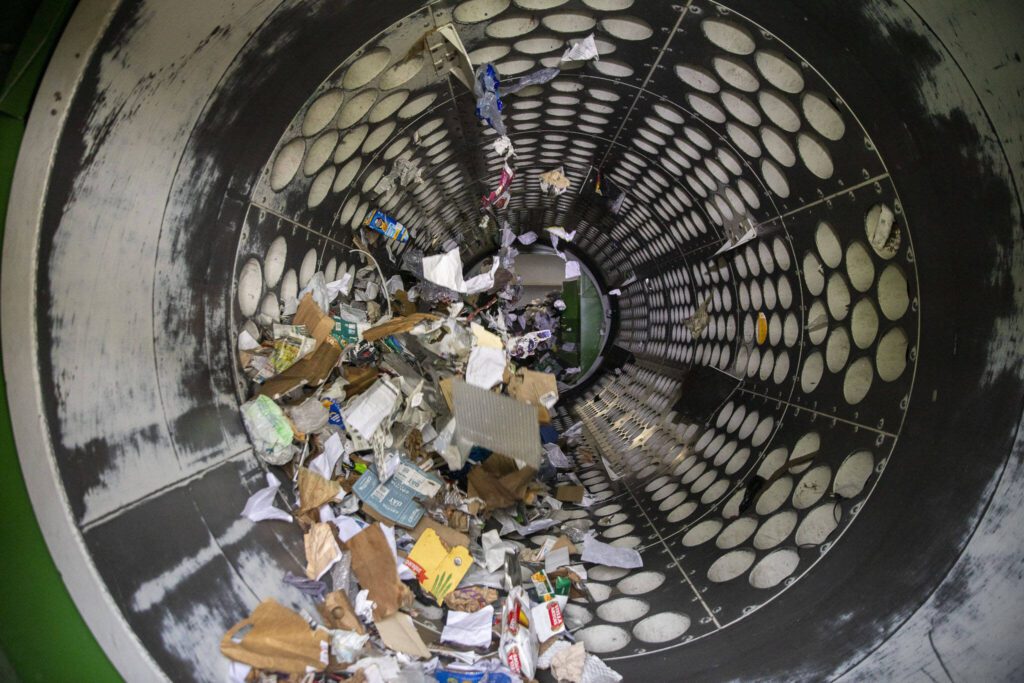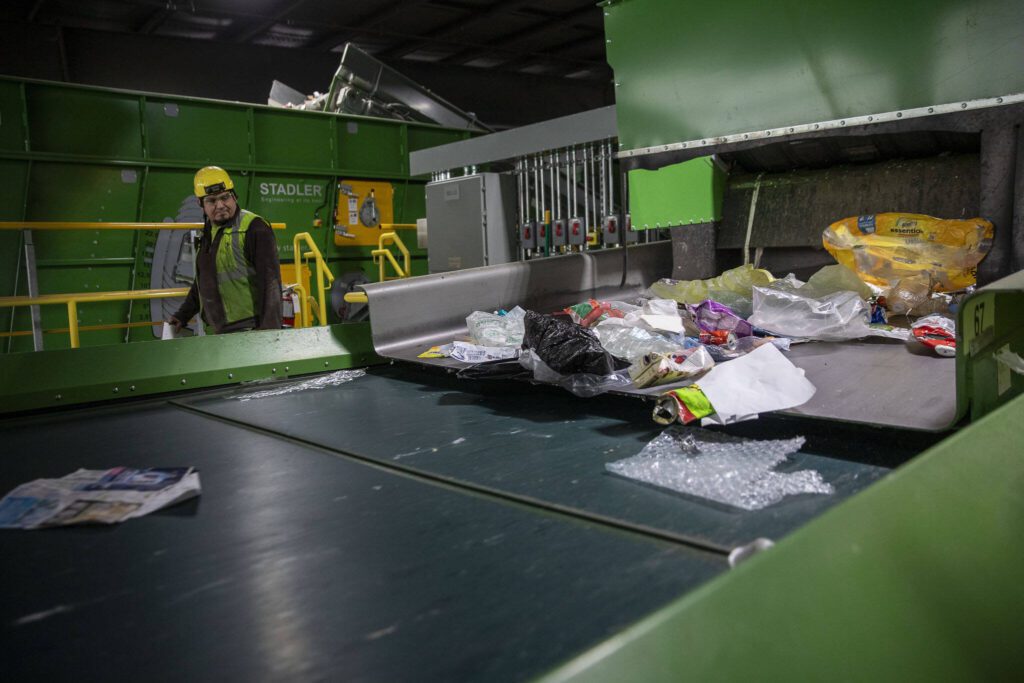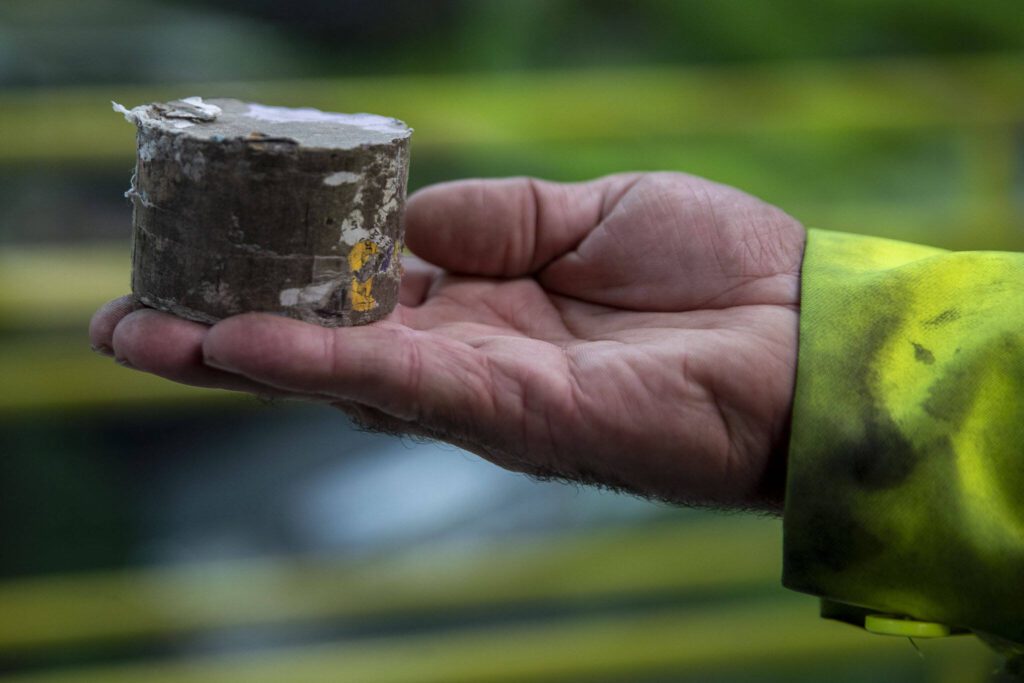WOODINVILLE — Certain colors stand out amid the heap waiting to be sorted at the Cascade Recycling Center.
Brown paper bags and cardboard. Clear plastic bottles and jugs. Yellow labels and plastic bags.
Many items, like a flattened blue paper box, are meant to be there. Others, like a red “Merry Christmas” pillow, are victims of what some experts call “wishcycling” — when people try to recycle products that can’t be recycled.
Operated by Waste Management, or WM, the renovated recycling center in Woodinville includes advanced, state-of-the-art sorting technology that became operational in August. Conveyor belts, rotating tunnels and magnets work in conjunction to separate valuable items from the rest. But its intake, from cities like Bothell, Granite Falls and Mukilteo, mirrors the confusion many residents have about what they can put in their blue bins.
I started as an environmental reporter at The Daily Herald in August, and some of my first questions from readers were about recycling in Snohomish County.
What’s accepted?
Where do recycled products go?
What do they get turned into?
Trash Talk will be a space to answer those questions, focusing on a different material or waste topic every month. For this first column, I talked with local waste collection facilities about whether they accept plastic clam shells — those containers typically holding berries and grapes at grocery stores, as well as leftovers from restaurants.
Facilities and cities tend to have different guidelines and accept different items.
WM’s motto is “clean, empty, loose,” said Karissa Miller, the company’s public education and outreach manager. She said the “loose” part of the slogan is to encourage people not to put their recycled items in a plastic garbage bag, as many do for their trash.
Republic Services, which collects waste from cities including Sultan, Snohomish and Monroe, has a motto of “clean, empty, dry,” said Wendy Weiker, sustainability and community outreach manager for Republic.
WM doesn’t accept plastic clam shells. Republic does.
An item’s thickness usually determines whether it is accepted or not, said Heather Trim, executive director of Zero Waste Washington. Items like peanut butter jars and detergent containers are thicker, so they’re most likely to become plastic again. Clam shells are on the opposite end of the spectrum.
But some manufacturers still use clam shells, turning them into fabric or carpet. That’s why Republic still takes them.
“We’d rather try than have people throw it away,” Weiker said.
Another root of confusion is the “chasing arrows” symbol on the bottom of clam shells and other plastics, causing people to mistakenly assume an item is recyclable when it might not be. A casual glance in the refrigerator verifies several clam shells — one holding Italian tomatoes and another holding grapes — have the chasing arrows symbol.
Yet, whether the plastic is accepted is a toss-up.
Legislation expected to be reintroduced during this upcoming session in Olympia may change that.
A significant part of the bill, known as the Washington Recycling and Packaging Act, is anticipated to focus on “truth in labeling,” said Brad Lovaas, executive director of the Washington Refuse and Recycling Association. He said manufacturers would be required to label packaging as recyclable only if the products are largely recycled in the state — similar to a component of a 2021 California bill.
The Washington measure died in a House committee during the last legislative session.
Lovaas said the legislation is also expected to promote a uniform, statewide list of items accepted by recycling facilities to eradicate the current differences among cities and collection services.
The goal is to boost Washington’s recycling rate, or the percentage of materials successfully recycled. At around 50%, Washington’s recycling rate is already well above the national average of about 32%.
“This whole notion of greenwashing doesn’t serve consumers, doesn’t serve the recycling system and certainly doesn’t serve the climate action we’re all trying to do,” Weiker said. “But there’s a lot of … work being done to try to bring some standards around what those chasing arrows mean.”
What questions do you have about recycling? Email Ta’Leah Van Sistine at the address below.
Ta’Leah Van Sistine: 425-339-3460; taleah.vansistine@heraldnet.com; Twitter: @TaLeahRoseV.
Talk to us
> Give us your news tips.
> Send us a letter to the editor.
> More Herald contact information.
